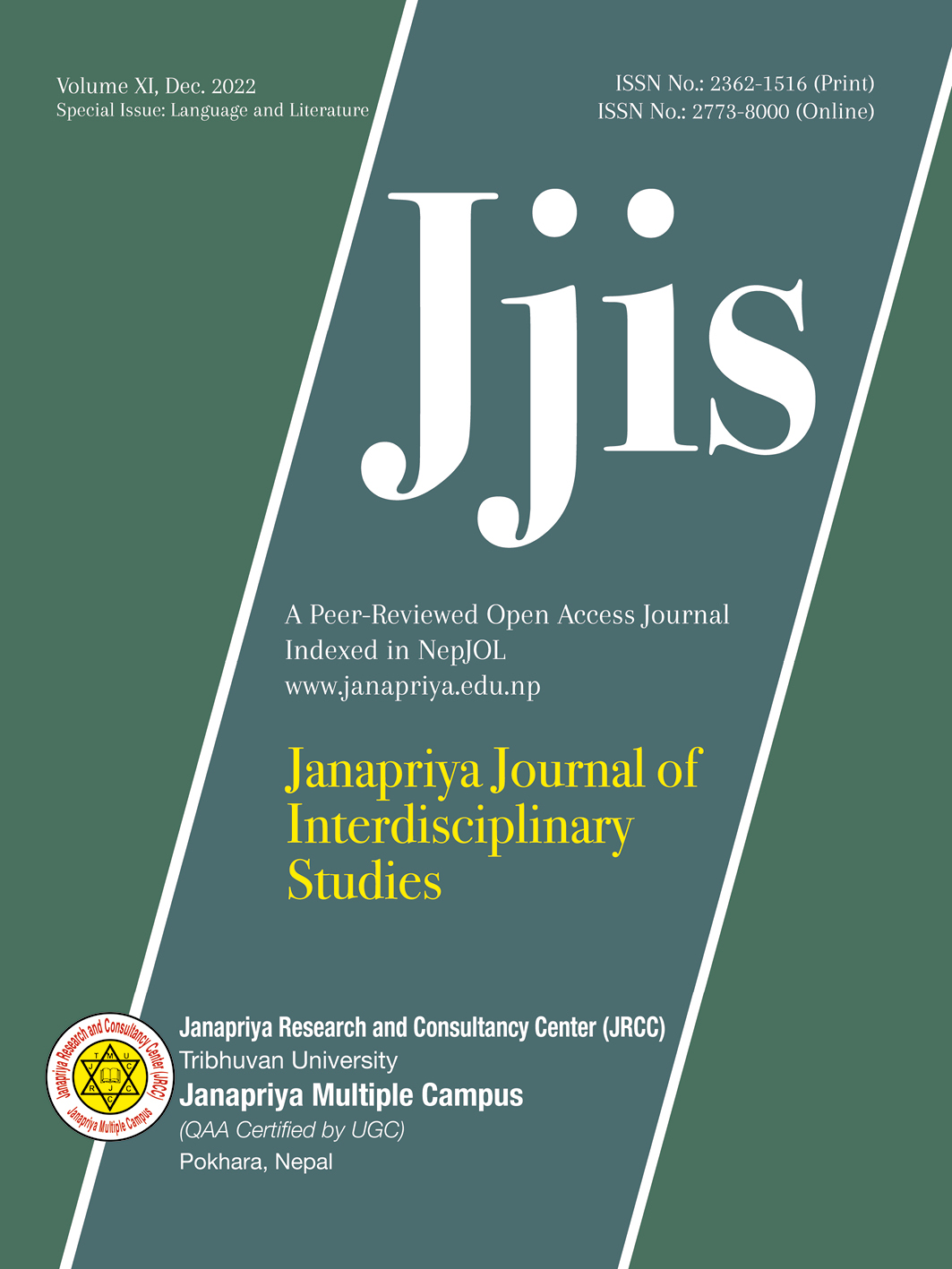Sexual Games of Power and Status in Edward Albee’s Who’s Afraid of Virginia Woolf ?
DOI:
https://doi.org/10.3126/jjis.v11i1.53905Keywords:
Discourse, gender subversion, identity, power, sexualityAbstract
This article explores the use of sexuality as a tool to achieve power and status by the characters in Edward Albee's drama Who's Afraid of Virginia Woolf? In this drama, the characters ignore the values of marriage, love, and sex in order to dominate others or control the situation for their intended goal. Reading Michel Foucault's discursive nature of power based on his work The History of Sexuality, Vol. 1: An Introduction, this study has justified the characters use of trivial sexual games and their motives to obtain power and status in a highly intellectual society. The characters of Albee's drama are prone to exercise power using their own sexuality. Negotiating and subverting the roles of gender and sexuality in private/public sexual games, they frequently foreground to fulfill personal desire in the existing social milieu. To unveil these aspects, this article has interpreted Albee’s drama with the theoretical dimension of power and sexuality postulated by Foucault, and has applied the content analysis method.




